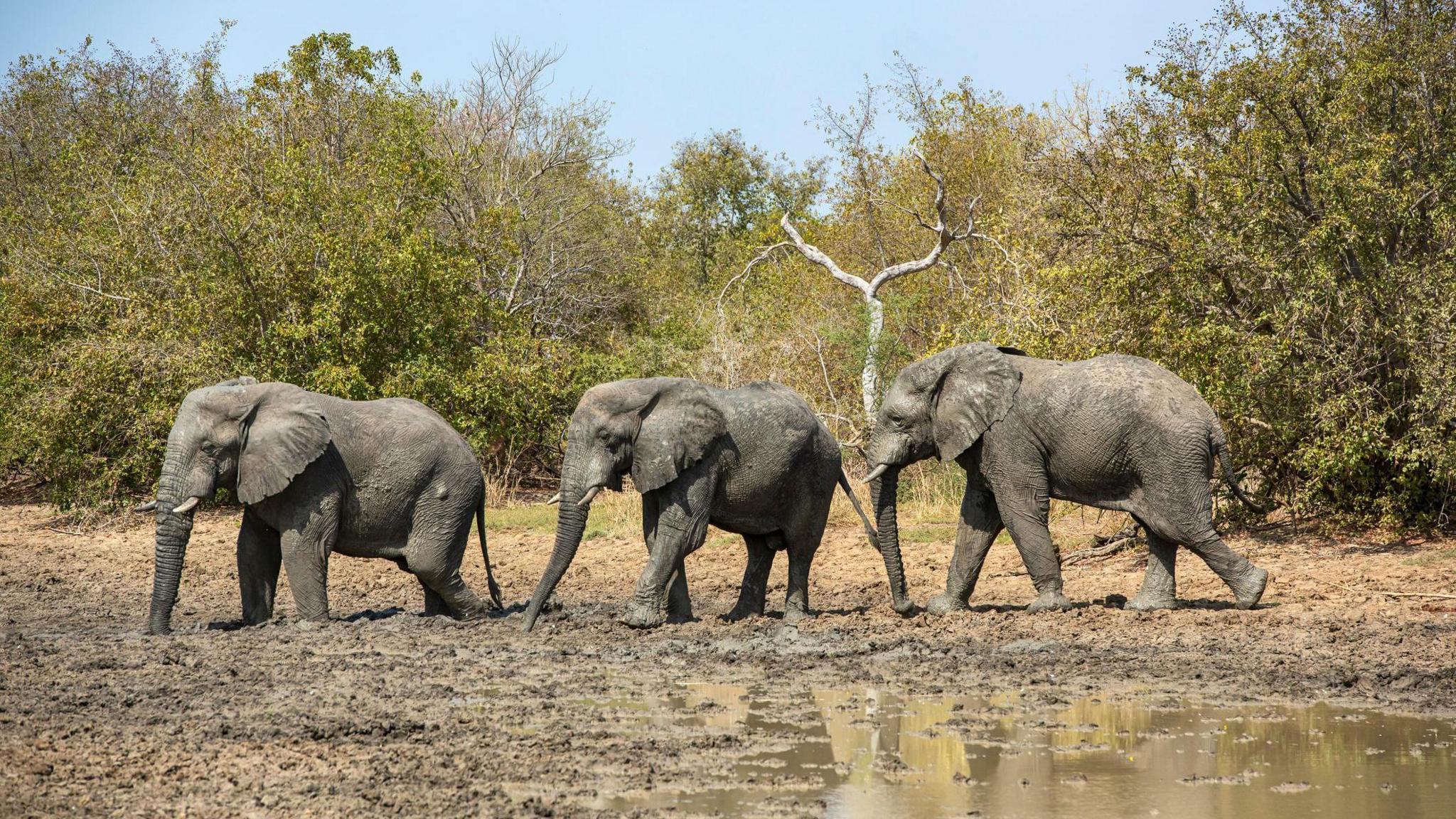Chad restores ties with wildlife charity linked to Prince Harry

The organisation will again manage Zakouma National Park where elephants are seen roaming in a file photograph
- Published
A conservation group linked to Prince Harry and Chad's government have agreed to sign a new partnership - less than two weeks after the central African country severed ties with the organisation.
Chad had terminated its agreement with African Parks on 6 October, accusing it of failing to curb poaching.
The two parties released a joint statement on Friday saying they have "initiated, in a spirit of dialogue and cooperation, a series of discussions relating to the delegated management of protected areas".
African Parks, which counts Prince Harry as a board member and former president, manages around 20 national parks and protected areas across 12 countries.
The new agreement will see African Parks once again manage Zakouma National Park and Ennedi Natural and Cultural Reserve in Chad, which it had managed for 15 years.
African Parks would continue to finance and co-manage these protected areas, as well as pursuing the implementation of future projects until new agreements are signed.
"This milestone comes at the close of a challenging period that required significant dialogue to reach mutual understanding and commitment on the way forward," a statement from the conservation group read.
Peter Fearnhead, CEO of African Parks, said the reinstatement "provides a stable foundation to continue safeguarding some of Chad's most extraordinary natural and cultural landscapes, together with the communities who depend on them".
Chad's government had accused the organisation of failing to curb poaching, an arrogant and disrespectful attitude, and not co-operating fully with authorities.
The environment ministry had blamed the resurgence of poaching in its natural parks on a lack of investment by the charity.
Founded in 2000, the organisation aims to protect Africa's national parks and advance conservation in the continent and around the world.
Earlier this year, the charity admitted that employees in a park it managed in the Republic of Congo had abused members of the local community, but refused to publish an independent report into the abuses.